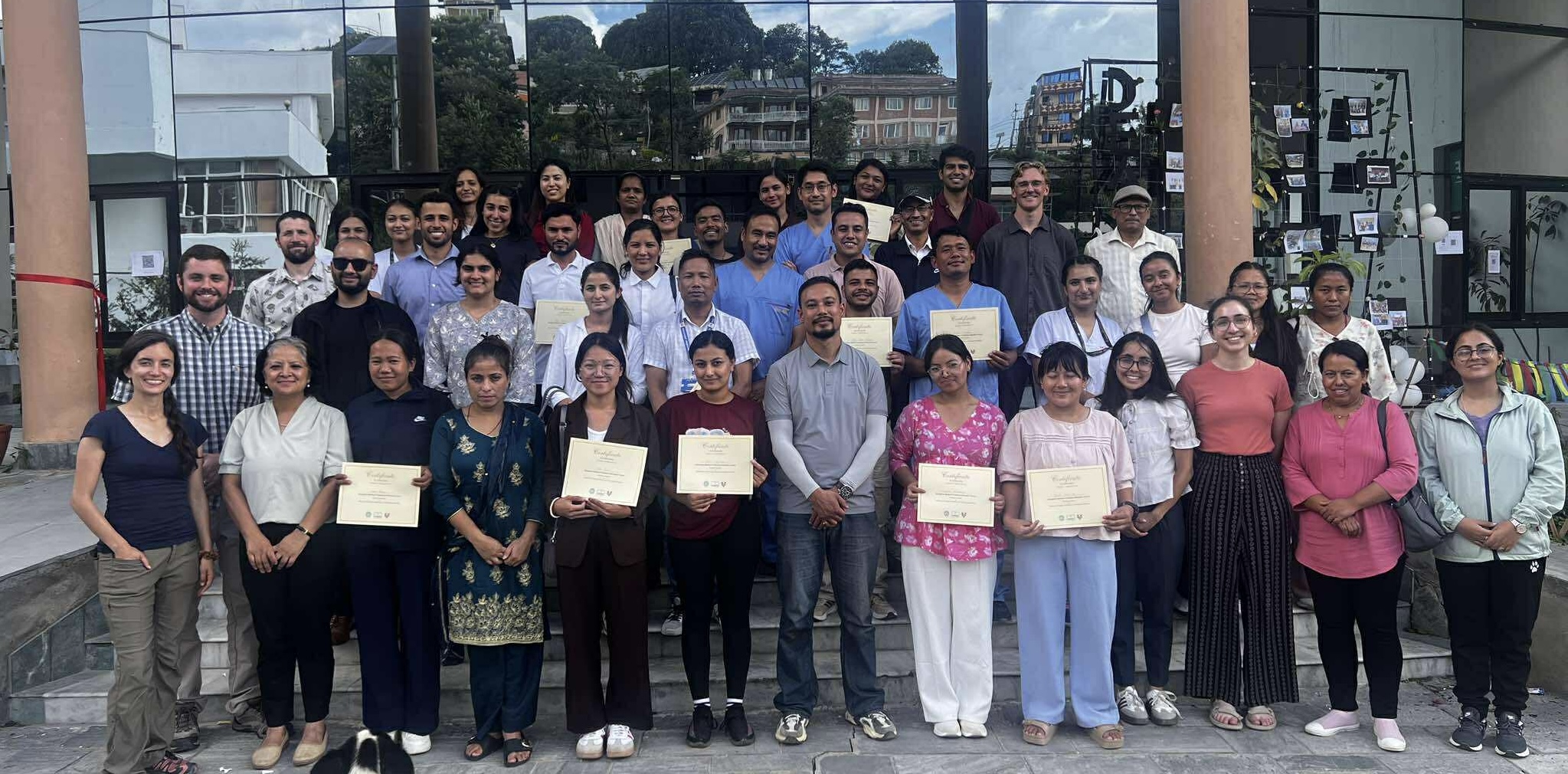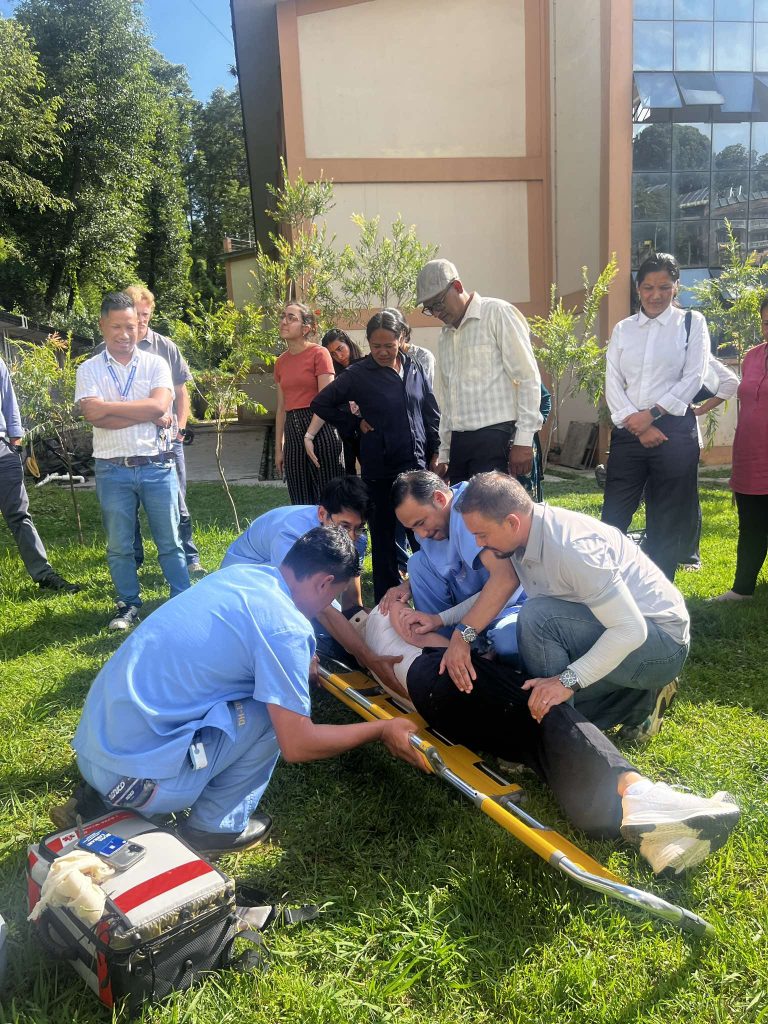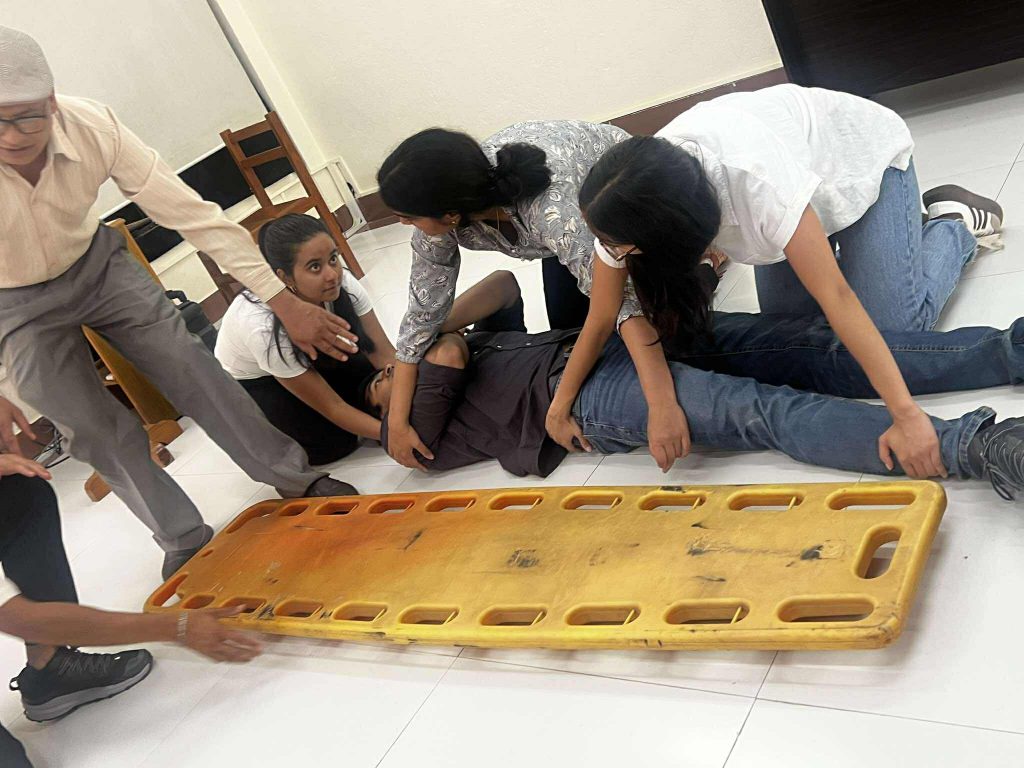
Kavrepalanchok: In Nepal’s hilly heartland, where treacherous roads wind through remote villages and every second counts in a medical emergency, a powerful partnership is bringing hope — not through new machines or big hospitals, but through skilled hands, determined hearts, and community-driven collaboration.
This week, Dhulikhel Hospital Kathmandu University hospital partnered with local government, District Health Office (DHO), a team from the University of Virginia’s (UVA) School of Medicine in the United States and AMPATH to provide critical emergency medical training to local paramedics, healthcare workers, and ambulance drivers. The goal: equip first responders with the life-saving knowledge and hands-on skills they need to save lives in even the most difficult circumstances.
Across Nepal, emergency care often faces major hurdles — from understaffed response teams and under-equipped ambulances to dangerous and worsening road conditions. Recognizing these challenges, the training was carefully designed to emphasize the essential, life-saving interventions that can be performed quickly and effectively in the back of an ambulance, also outside in the field or even by a driver when alone with a patient.


On Monday, July 7th, the team launched their first “EMT Refresher Course,”an awareness program, hosting over 30 paramedics from across Kavrepalanchowk district. Many traveled hours to attend, underscoring the urgent need and deep commitment among local healthcare providers. The course combined lecture sessions with intensive hands-on skills stations, offering participants the chance to review, practice, and refine critical interventions.
In addition to the attending paramedics, several nursing and medical students joined the sessions to observe, learn, and practice alongside their senior colleagues — further strengthening the future of pre-hospital care in Nepal.
The momentum continued on Wednesday, July 9th, when the team hosted their second training, this time tailored specifically for ambulance drivers and first responders. In many rural or resource-limited settings, drivers often become de facto first responders. This course focused on equipping them with basic yet life-saving skills such as bleeding control, fracture stabilization, rescue breathing, and more. In a heartening show of peer-led education, many of the paramedics who had completed Monday’s training returned — not as students, but as teachers, helping run the skills stations and mentor the drivers.
This impactful collaboration stands as a testament to what’s possible when international partnerships align with local expertise and commitment. The overall team brought their medical knowledge along with the energy and engagement of the participants for strengthening pre-hospital care ,which made the program a true success.
A heartfelt thanks goes to AMPATH and the UVA team , District Health Office, Kavrepalanchowk and everyone else who were involved for their tireless dedication to improving pre-hospital care in Nepal. Their commitment to service, education, and innovation continues to inspire and uplift, one life-saving skill at a time.

Happy

Sad

Wonderful

Excited

Angry
[…] At Dhulikhel Hospital, they partnered with local physicians in emergency medicine to conduct trainings for 30 ambulance drivers and 30 EMTs in basic life-saving skills. Drs. Peter Vandersteenhoven, Nardos Makonnen, and Amita Sudhir (emergency medicine faculty) and Dr. Nicholas McKean (resident in emergency medicine) mentored the students through designing and teaching the locally contextualized workshops, which were featured in a local newspaper. […]